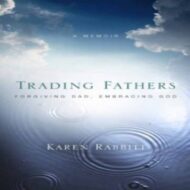"The dead man came out, his hands and feet wrapped with strips of linen, and a cloth around his face. Jesus said to them, 'Take off the grave clothes and let him go.'" John 11:44
Either Gayle Erwin or Dick Foth spoke on this text thirty years ago at Urbana Assembly of God. I still remember the point: it's the body of Christ who is given the responsibility to "take off the grave clothes." Jesus didn't take off Lazarus' wrappings after he raised him from the dead. He charged those around him with the task of unbinding Lazarus' graveclothes. At an art museum in Lafayette, Lousisiana a few years ago, I saw a small sculpture of Lazarus, fresh from the tomb, exalting, but still bound round with fabric. He obviously needed help to get out of those dead clothes.
The speaker that day encouraged each of us in the congregation of several hundred to help each other recognize and remove the shroud of our old thinking. I"m grateful for that group in the seventies, who helped me recognize lies the enemy had planted in my early traumas. That teaching, of course, was one of many on the topic of loving each other, but that specific imagery has stuck with me, as I, too, have helped others remove the wrappings of habits that bring death rather than life.
Do you have a seminal sermon that comes back to you at important times in your life? An image, a thought, a feeling, even, that continues to guide your choices today? Something someone said at a time of transition, when we are particularly open to new ideas? Maybe a friend spoke God's words to us when we were finishing graduate school and seriously depressed. A time when we faced a tricky surgery, anxious about the outcome. Or like me at Urbana Assembly, a nurturing pastor's good words that laid the foundations for our spiritual lives. If you do, I'd love to hear it.
Father, thank you for those who have spoken your word to us and those who help us release the old lies. You, alone, are truth.
